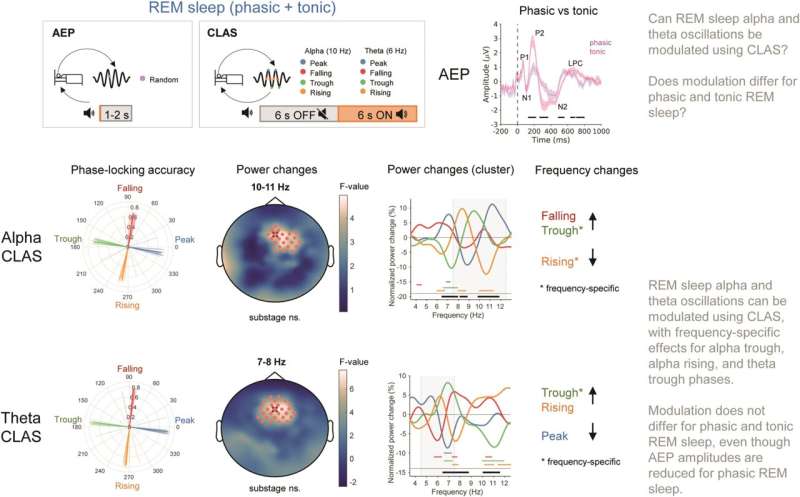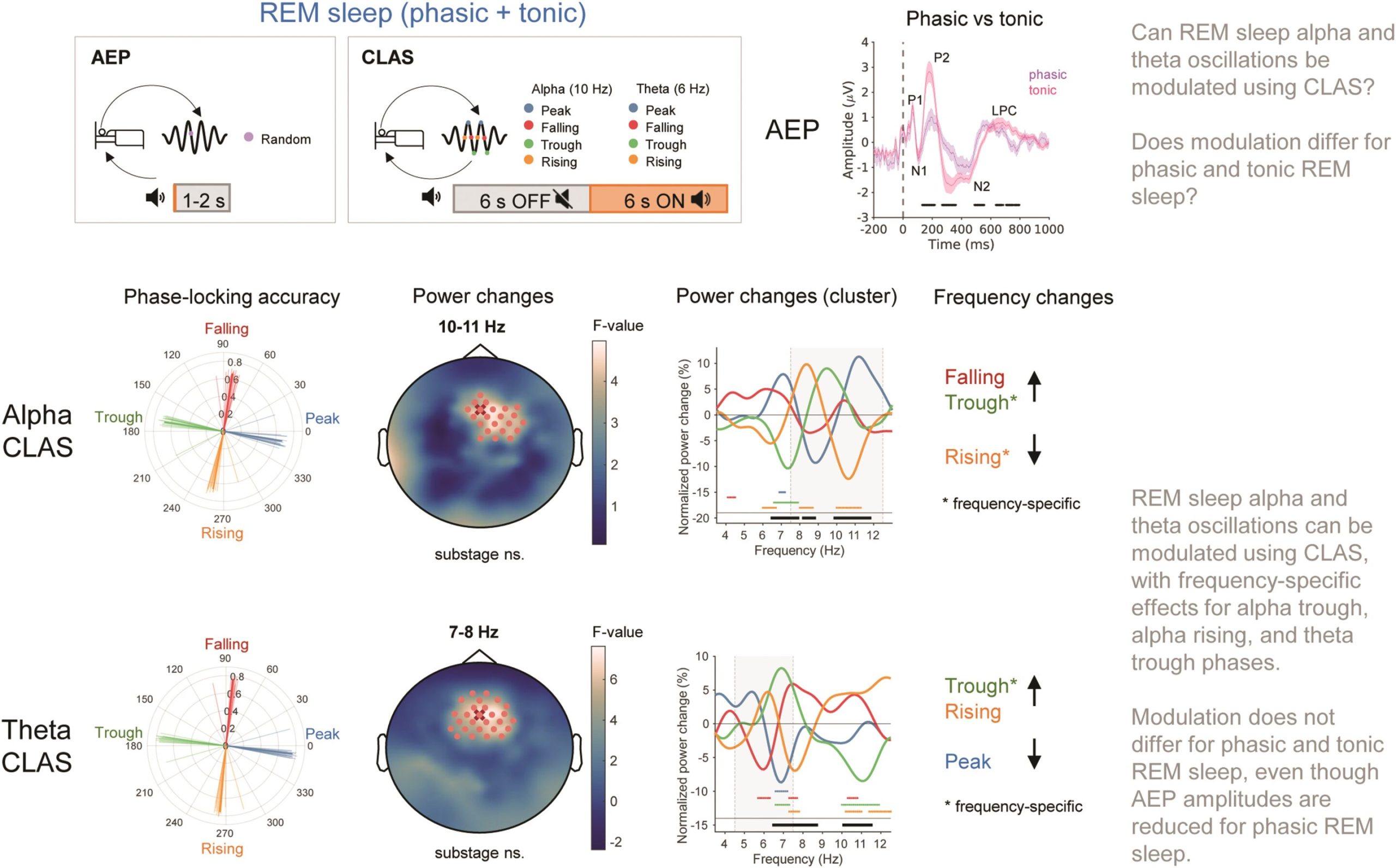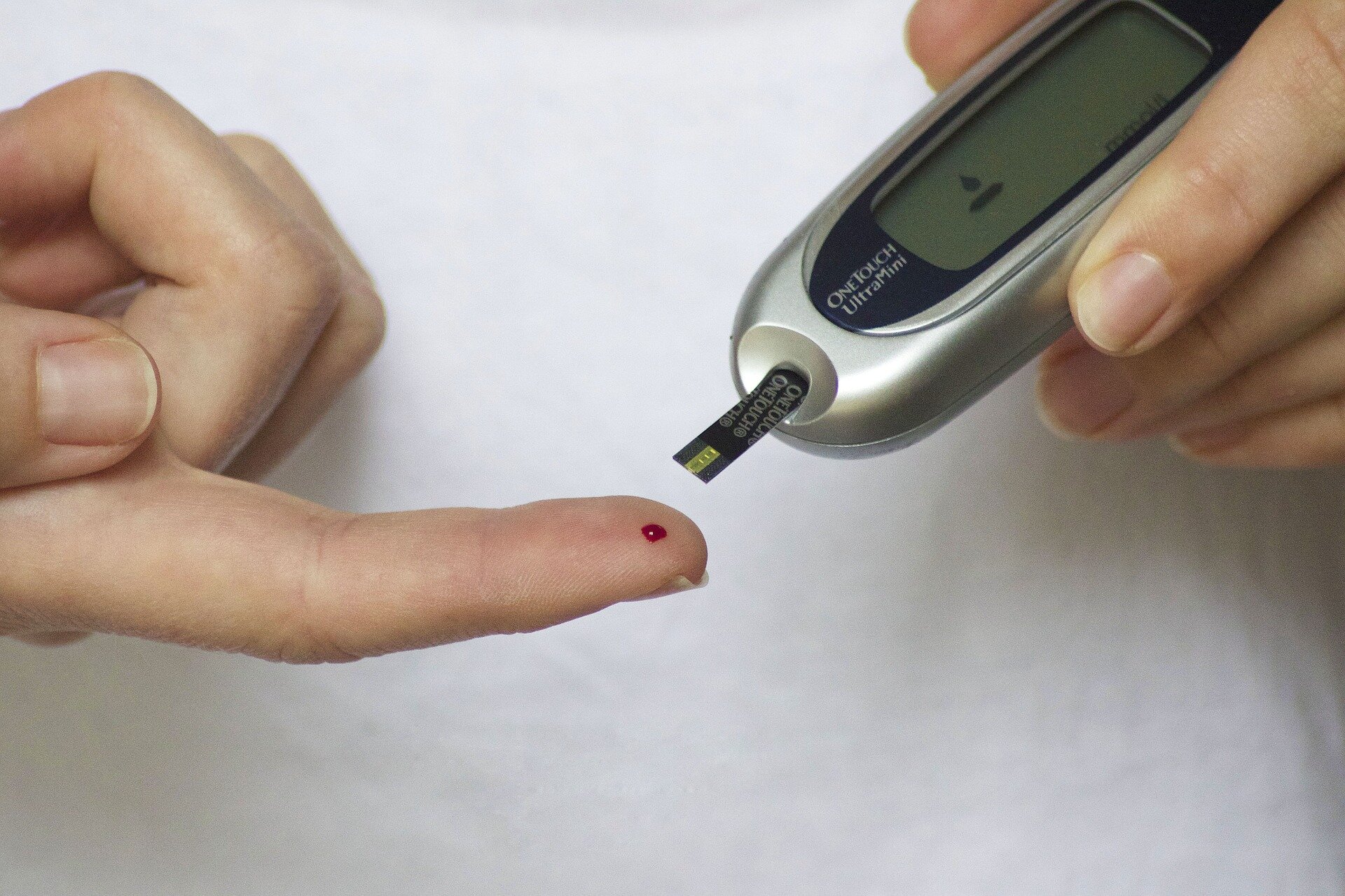
Brain waves can be manipulated while in rapid eye movement (REM) sleep, a sleep stage associated with memory and cognition, a new study from the University of Surrey finds. Novel technology, using sound stimulation, allows scientists to speed up brain activity which becomes slower in patients with dementia during this sleep stage.
During this unique study, Surrey scientists in collaboration with the UK Dementia Research Institute Centre for Care Research and Technology at Imperial College London, used a recently developed technology, closed-loop auditory stimulation, which targets brain oscillations during sleep in a precise way.
With this technology, sounds are timed to hit brain waves at particular parts (e.g. waxing and waning phase) of the oscillation. Sounds were administered accurately with a speed of six (targeting theta waves) or ten (targeting alpha waves) times per second. For the first time, this was done during the REM period of sleep when brain activity is similar to wakefulness, but movement is inhibited.
Dr. Valeria Jaramillo, Swiss National Science Foundation postdoctoral fellow at the Surrey Sleep Research Centre and School of Psychology both at the University of Surrey, Emerging Leader at the UK Dementia Research Institute and first author of the publication said, “Brain oscillations assist in the working of the brain and how it learns and retains information. Brain oscillations during REM sleep have been implicated in memory functions—however, their exact role remains largely unclear. In dementia, brain activity during REM sleep becomes slower, which is associated with a reduction in the ability to remember certain life events and retain information.
“Stimulating brain waves with sound can increase their frequency and this can help to better understand how brain oscillations in REM sleep promote cognition and how REM sleep can be improved in those with dementia.”
To investigate the effect of stimulation,18 participants were recruited and were monitored overnight at the Surrey Sleep Research Centre. Their sleep was continuously monitored via electrodes placed on their scalp, and the brain oscillations were analyzed in real-time so that auditory stimuli could be administered at precise parts of the oscillations without waking participants. Depending on which part of the cycle was targeted by the auditory stimuli, oscillations became either faster or slower demonstrating that brain waves can be manipulated.
Professor Derk-Jan Dijk, director of the Surrey Sleep Research Centre at the University of Surrey, UK Dementia Research Institute Group Leader and senior author of the publication, said, “This could pave the way for a new approach on how to treat patients with dementia, as the technique is non-invasive and undertaken while they are asleep, lessening the disruption to their lives and enabling us to be more targeted in our approach.”
Dr. Ines Violante, senior lecturer in psychological neuroscience at the University of Surrey and senior author of the publication, said, “Using sound stimulation to change brain oscillations while a person sleeps shows therapeutic promise. There is currently no cure for dementia, only medication that can slow down disease progression or temporarily help a person with their symptoms, so it is important that we think innovatively to develop new treatment options. Sound stimulation, which is a non-invasive inexpensive technique, has the potential to do just this.”
More information:
Valeria Jaramillo et al, Closed-loop auditory stimulation targeting alpha and theta oscillations during REM sleep induces phase-dependent power and frequency changes, SLEEP (2024). DOI: 10.1093/sleep/zsae193
Citation:
Study finds brain waves can be manipulated during REM sleep (2024, September 11)
retrieved 13 September 2024
from https://medicalxpress.com/news/2024-09-brain-rem.html
This document is subject to copyright. Apart from any fair dealing for the purpose of private study or research, no
part may be reproduced without the written permission. The content is provided for information purposes only.


